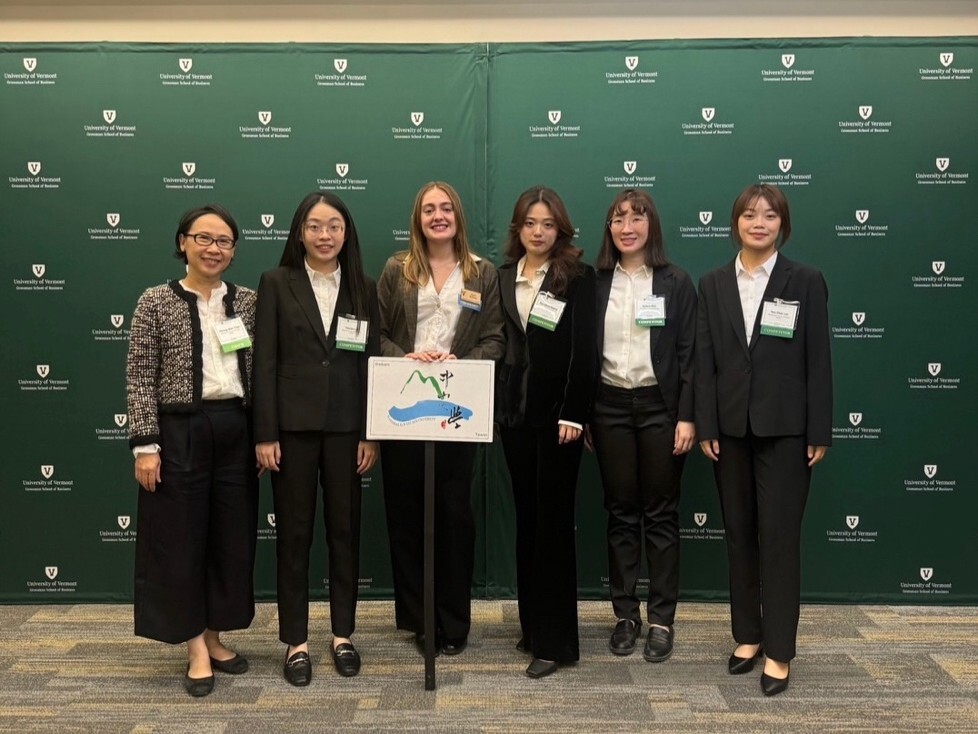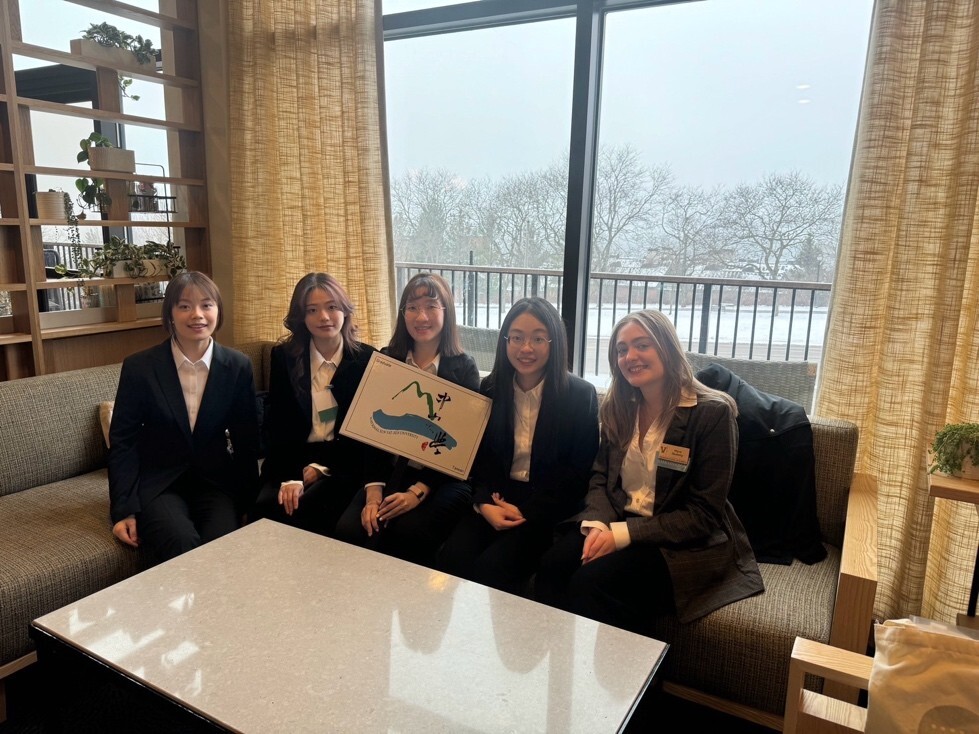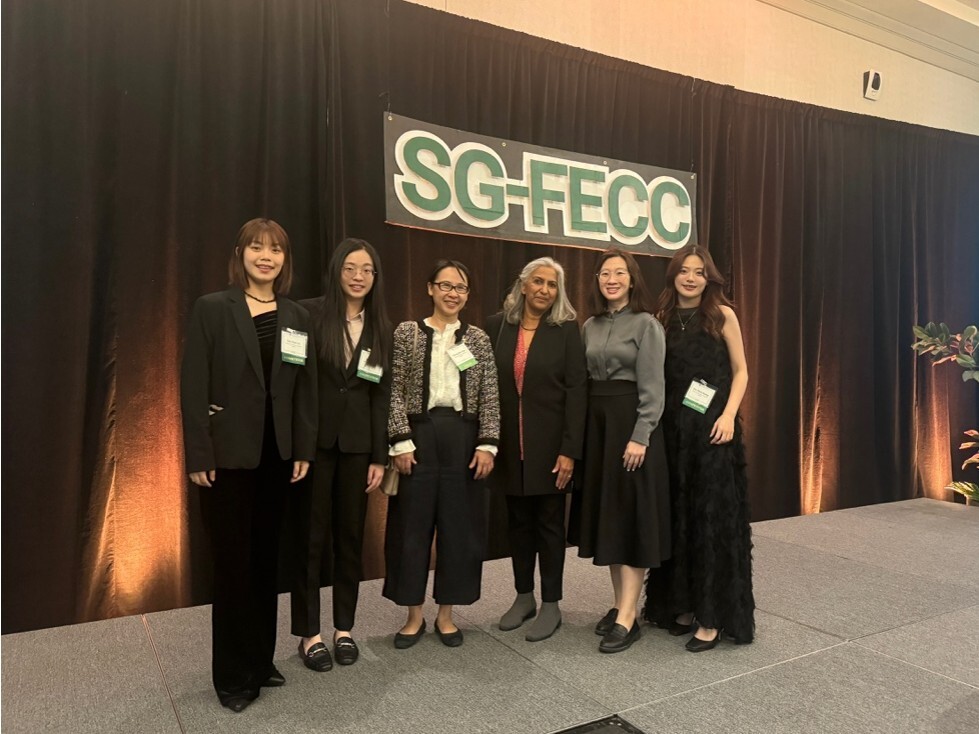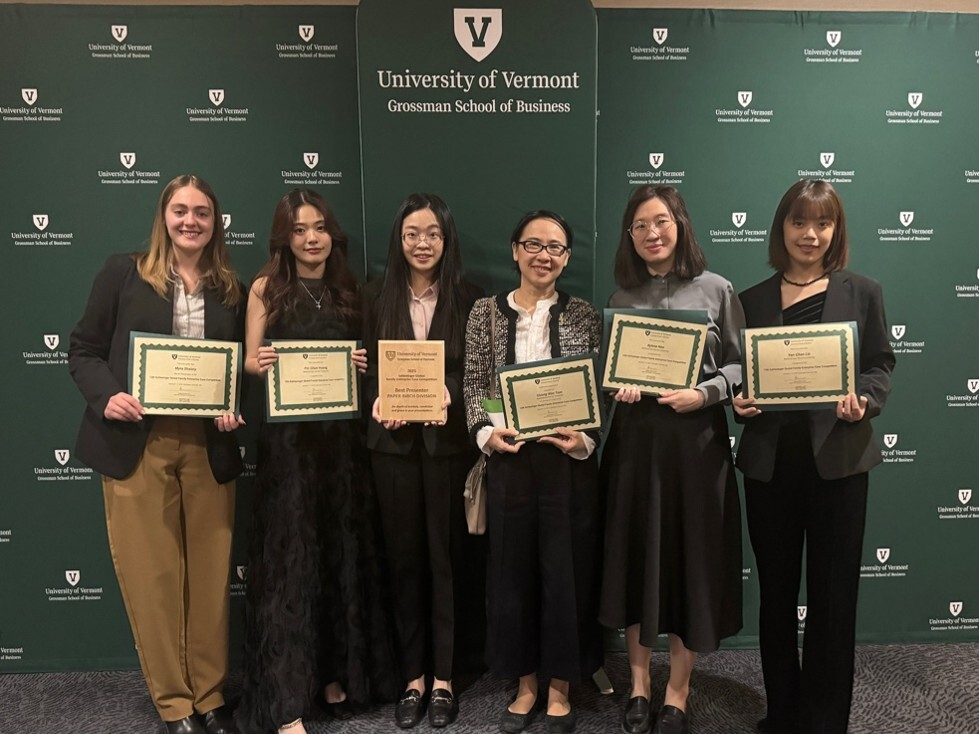Center for Strategy and Human Capital Research Champions Global Competitions, Showcasing Student Excellence (2025/01/08-01/11)
2025/01/08-01/11
Center for Strategy and Human Capital Research Champions Global Competitions, Showcasing Student Excellence
From January 8 to 11, 2025, the Center for Strategy and Human Capital Research at National Sun Yat-sen University (NSYSU) led four College of Management students in the 12th Schlesinger Global Family Enterprise Case Competition (SG-FECC) at the University of Vermont, USA. Under the guidance of Professor Shyh-Jer Chen from NSYSU and Professor Chiung-Wen Tsao from the National University of Tainan, the team showcased their expertise and international competitiveness, marking another milestone for NSYSU globally.
This opportunity was made possible through the support of Yi Cheng Intruper International Co., Ltd. (以珹股份有限公司) and Harpro Resources Limited (禾寶實業股份有限公司), both managed by EMBA alumni. Their sponsorship helped cover the team’s expenses and was crucial to the team’s ability to participate in the event.
As one of the leading global competitions in family business studies, SG-FECC gathers teams from across the world to address pressing challenges faced by family enterprises, such as sustainability and generational transitions. Through analyzing real-world cases, participants develop innovative and practical solutions that combine theoretical insight with business experience.
Navigating Real-World Challenges with Precision
This year’s competition focused on helping family businesses navigate volatile market environments, generational shifts, and sustainability challenges. Teams were given four hours to analyze cases, develop strategic recommendations, and deliver high-impact presentations. Beyond tackling management, finance, and strategy issues, participants had to account for family dynamics and cultural factors to offer comprehensive solutions. This rigorous process tested their problem-solving skills, communication abilities, and adaptability under intense time constraints.
Competing for the second consecutive year, NSYSU stood among 24 teams from countries including the United States, Canada, Germany, Ireland, the Netherlands, Romania, and Taiwan. The event brought together more than 122 participants and coaches, with a panel of 60 international judges providing professional evaluations. As the competition presented complex, real-world challenges, the NSYSU team not only honed their analytical and strategic abilities but also experienced significant personal growth.
NSYSU’s team stood out for their analytical precision and teamwork. Jessica (Yen-Chu Lai), a Ph.D. candidate from the Institute of Human Resource Management, won the "Best Presenter Award" for the second year in a row. “Although this is an individual award, it’s truly a reflection of our team’s dedication and collaboration,” Jessica said, attributing her success to the group’s synergy and the judges’ valuable feedback, which helped her grow throughout the competition.
Carolyn (Pin-Chun Huang), an International Business MBA student and a member of her own family business, reflected on the experience: “The competition challenged us to integrate theory with practice to address complex business problems. It significantly enhanced my decision-making, teamwork, and communication skills.” She also noted that the strict time limits pushed her to prioritize effectively, ensuring presentations were both impactful and concise.
Kylene (Shi-Ling Neo), another International Business MBA student, emphasized the benefits of interacting with diverse international teams. “The three days of competition tested my problem-solving and presentation skills, while also broadening my global perspective and helping me build valuable networks,” she said.
Jenny (Yen-Chen Lin), an MBA student, described the competition as a realistic simulation of the challenges faced by family enterprises. “This experience deepened my understanding of family businesses and cross-cultural dynamics, boosting my confidence in tackling complex challenges,” she shared.
Inspiring Future Participation
Although NSYSU’s team did not win the top prize, their performance showcased the importance of such competitions in shaping future leaders. The team hopes their experience will inspire other students to participate in similar events. To further enhance practical skills, they recommended integrating family business case studies into the curriculum and creating simulation competition clubs. They also encouraged the Center to continue fostering global learning opportunities, enabling students to thrive on the international stage.
By providing continuous hands-on learning and international exposure, the Center ensures that students are not only prepared to meet the meet the challenges faced by family businesses but are also positioned to lead and innovate across industries.





